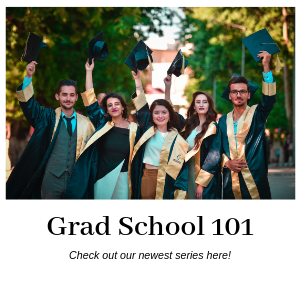How To Be A Master of All Trades: Q&A With Dr. Siddharth Saxena
 |
| Dr. Siddharth Saxena |
Dr. Siddharth Shankar (Montu) Saxena has a career that most of us can only marvel at. Born in 1971 in Lucknow, he attended schools in India, US, Britain, France, Germany and Switzerland.
In 1989, he graduated from Bonnabel High School and went on to do a major in Physics and History from the University of New Orleans. His next stop was Cambridge, having been awarded a Commonwealth Trust – Trinity scholarship to pursue a PhD in Physics at Cavendish. Today, he is a Principal Research Associate there. Post-doctoral research took Dr. Saxena to the Groningen University and UCL. In 2006, he was awarded the IUPAP Young Scientist Medal for discovering the first ferromagnetic superconductor.
For most of us, these achievements are, by themselves, gasp-inducing. But, they are only a half of the story because Dr. Saxena is not just a physicist but also an anthropologist and development studies expert of note. He combines ethnographic study of Central Asia and Eurasia with policy engagement at top governmental level in various parts of the world and along with Physics, he has continued dedicated research in Anthropology. Specifically, in the history and linguistics of the Middle East and Central Asia. Since the early nineties, Dr. Saxena has been involved with field research in Bukhara and the Ferghana Valley, studying notions of cosmopolitanism and developing the concept of ‘projected commonality’. He is the present chairman of the Cambridge Central Asia Forum.
His aptitude for excelling in multiple disciplines – both as a student, and today as an academic, gives Dr. Saxena a unique perspective on the methods and systems of education around the world. BrainGain magazine spoke to him at the One Globe conference held earlier this year. Below are edited excerpts.
-
What is your opinion on multidisciplinary studies versus single focus majors?
I think there is no contradiction between the multidisciplinary and the single honors system because one can always sequence how one builds the knowledge base. For example, one can sequence [subjects] within a technical discipline. So, if you’re studying Geology, it is necessary for you to know not only Physics and Chemistry at the same time, but also Geography as well as History. They are [all] relevant to the study of that subject. So, [the] interdisciplinary and multidisciplinary [focus] has to be built into the program. And multidisciplinary [doesn’t preclude] grounded training in a discipline. If you don’t have full knowledge of each discipline, then you cannot be multidisciplinary.
-
You’ve studied in India, US, UK, France, Germany, the Soviet Union and Switzerland. As a student, what helped you adapt to the different education systems in these countries?
My first and formative years of education were here in India. [As were] some of my best learning environments in which I learnt the most. This was partly because of the diversity of subjects. In India, you have to choose [after 10th grade] but I left at high school level and didn’t have to choose. So I had to do full scale Biology, Chemistry, Physics and Geology. That was an Indian thing which gave me the firm basis to do anything I wanted.
My further education was in Soviet Union which helped me to learn more Mathematical and Physical Sciences in a grounded way.
Then I went to the United States, where I had the choice to select between these things. But, as I said earlier, having a firm basis across subjects, I was better placed to choose than my peers in the US, who had a little bit of everything.
-
What are your comments on the dynamic between the Indian and global education systems?
While taking in new ideas from global experience, we have to be both careful and excited.
In terms of systems we should borrow – I think we have to look back at our own system, which produced much of the global workforce. India’s education system, from Independence to the 1980s, is what has contributed [majorly] to the global workforce. And that system we have abandoned.
In terms of the kind of technologies we can use to communicate [which] is a positive thing, we can look outside.
So, we have to look outside for technology, and within [the system] for content.














